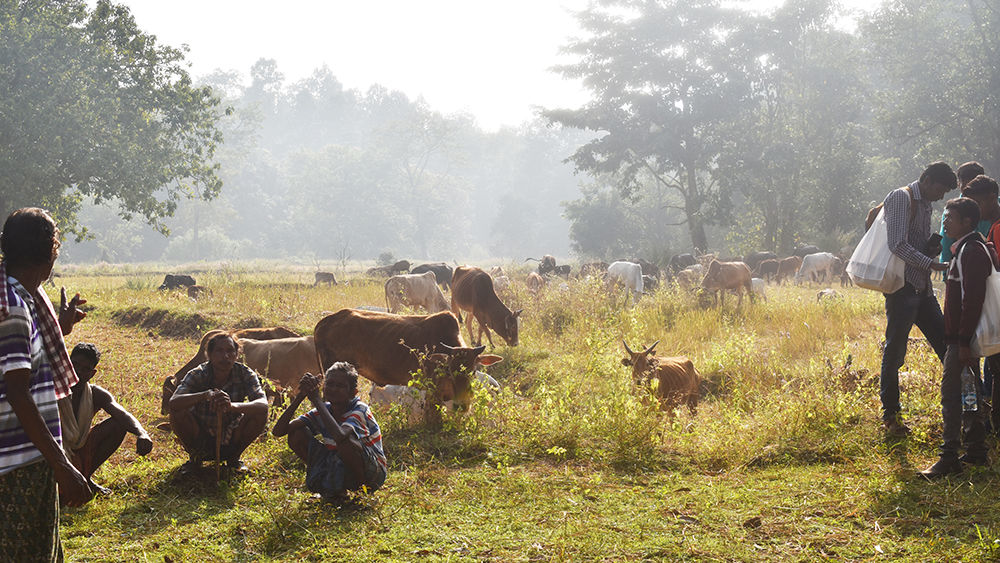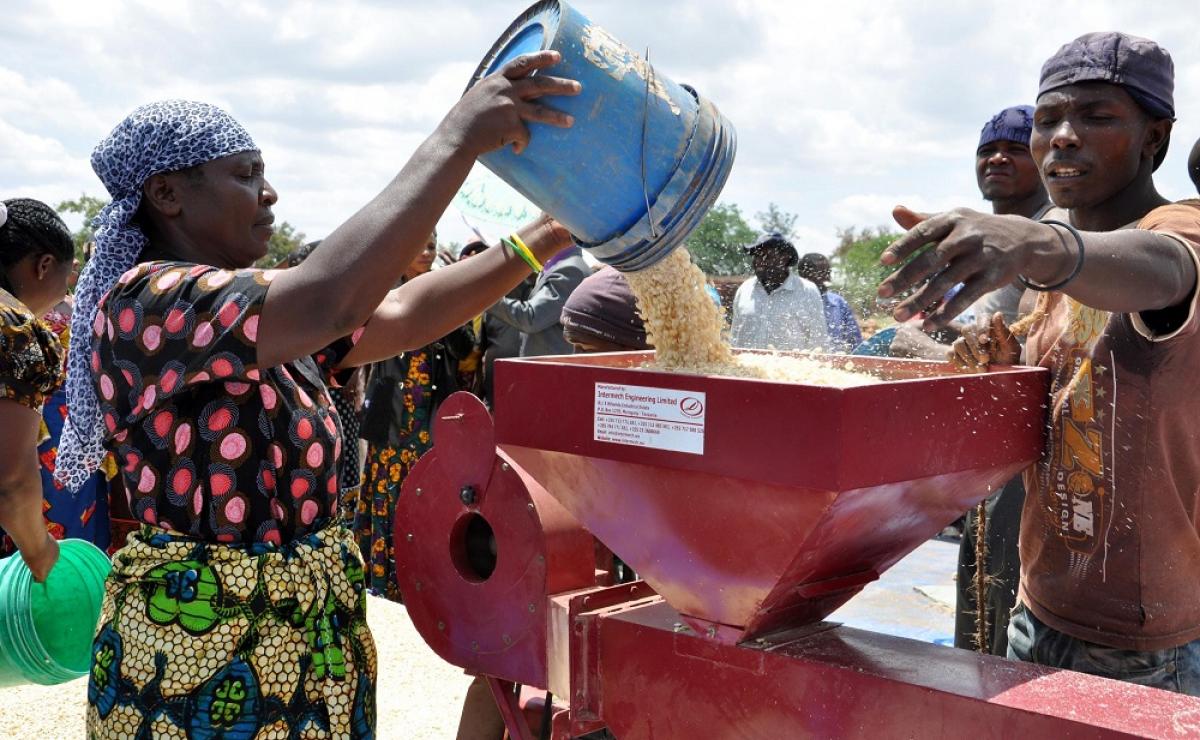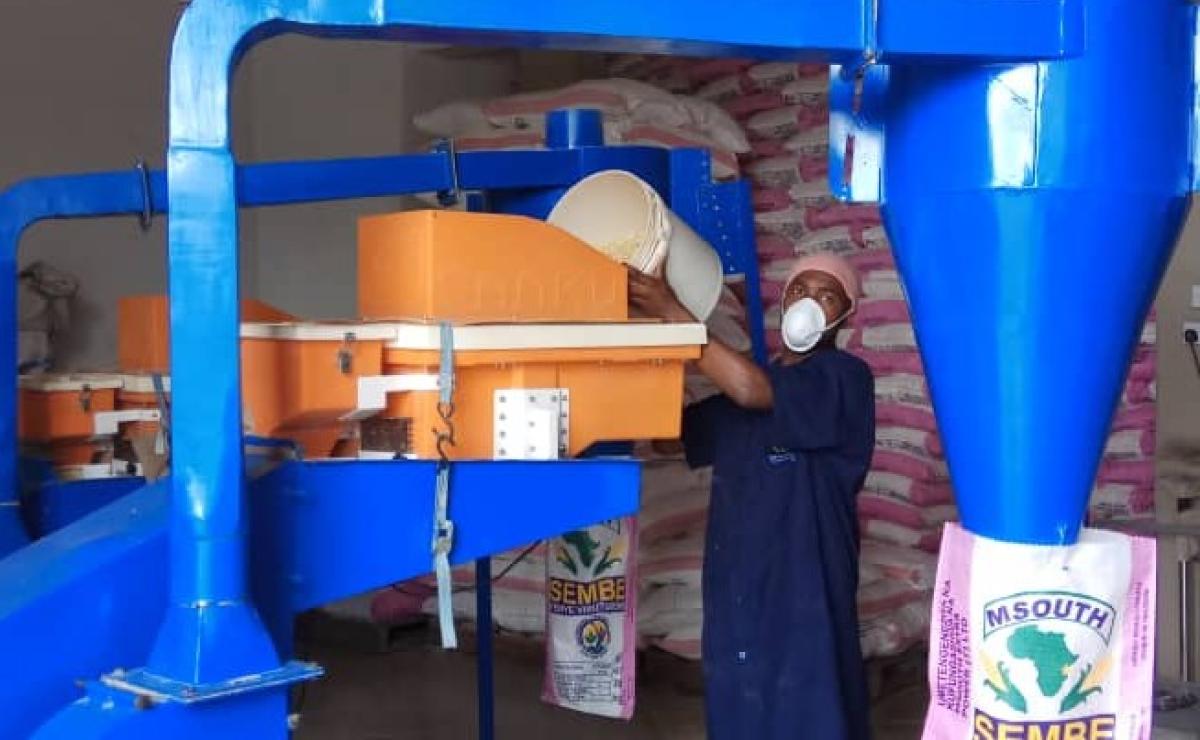IFAD Innovation Talks are a series of monthly sessions, lasting one hour. They feature innovative approaches,
tools, products and services developed by IFAD, its partners and the members of the IFAD Innovation
Network in order to further the aims of the network, as listed above. The Talks follow various formats: from
interviews and panel discussions to TEDx talks and demonstrations of new technological tools.
#IFADiNNovationTalk no. 3, aimed to share experiences from three development finance institutions (DFIs), the UN Innovation Network, the WFP Innovation Accelerator and the private sector (VentureWell) on what they have learned from designing and implementing innovation challenges.
- Agenda
- Concept note
- Q&A report addressing questions not answered during the live session:
- Speaker profiles:
- Johanna Jochim, Manager of the UN Innovation Network, moderater
- Irene Arias Hofman, CEO of IDB Lab which counts over US$2 billion in projects across 26 countries in Latin America and the Caribbean
- Edward Gallagher and Gladys H Morales from IFAD
He shared lessons drawn from the 2019-2020 internal innovation challenge where the organization funded IFAD teams to test and develop ideas to find creative ways to deliver better results quicker. Over 50 proposals were submitted. IFADfunded ten winning proposals. The first group of IFAD Innovators finished their projects in 2020. They tested new ways of doing things, including through ideas like machine learning, remote sensing, virtual reality and even board games. IFAD is now assessing results and looking to scale up successes. These included using geospatial and remote sensing data, frontier technologies, gamification, virtual reality and digitalization of business processes.
Examples:
Accurate, validated maps of local communities’ lands - The initiative explored innovative geospatial-based approaches and solutions to collect and share data with collaborating institutions on indigenous and local community (IPLC) lands. - Hila Cohen, from the WFP Innovation Accelerator, shared lessons from the implementation of innovation challenges that brought together innovators, entrepreneurs, programmers and developers and provided them with access to funding, mentorship, hands on support and access to WFP operations.
The WFP Innovation Accelerator is among others supported by USAID, the Netherlands, and Luxembourg.
See the WFP Innovation Accelerator annual report (68 pp.)
Examples:
H2Grow is a WFP innovation that brings locally adaptable and affordable hydroponic solutions to vulnerable communities around the world.
The Farm to Market Alliance helps smallholder farmers receive relevant information, investment and support from seed to market, so they can produce and sell marketable surplus and increase their income.
WFP is scaling up a Post-Harvest Loss Reduction programme that sells low-cost, locally-produced silos and provides training to smallholder farmers in developing countries.
Sanku provides fortification tools, training and other support to small-scale flour mills, enabling them to fortify their flour with essential micronutrients. - Marc Lepage from the ADB (Asian Development Bank) shared his experience designing and implementing ADB’s “digitalsandboxes” programme, an initiative that uses emerging digital technologies like artificial intelligence, blockchain and robotics to future-proof the ADB and support greater agility.
- Phil Weilerstein, President and CEO of VentureWell
He shared his organization’s experience in fostering collaboration among the best minds from research labs, academia and beyond to advance education in innovation and entrepreneurship and to provide unique opportunities for science, technology, engineering, and mathematics (STEM) students and researchers to fully realise their potential.
Using practice-based evidence, VentureWell developed the Venture Development Framework to describe the development of early-stage science and technology-based ventures. This framework can inform the development, implementation, and evaluation of programs supporting entrepreneurs. For example, it can help practitioners define program scope, develop program content, or identify program gaps and partners. For researchers and evaluators, it can inform program evaluation by articulating what milestones ventures can achieve after completing different programs. - IFAD’s Vice-President, Dominik Ziller, concluded the session: see closing remarks






No comments:
Post a Comment